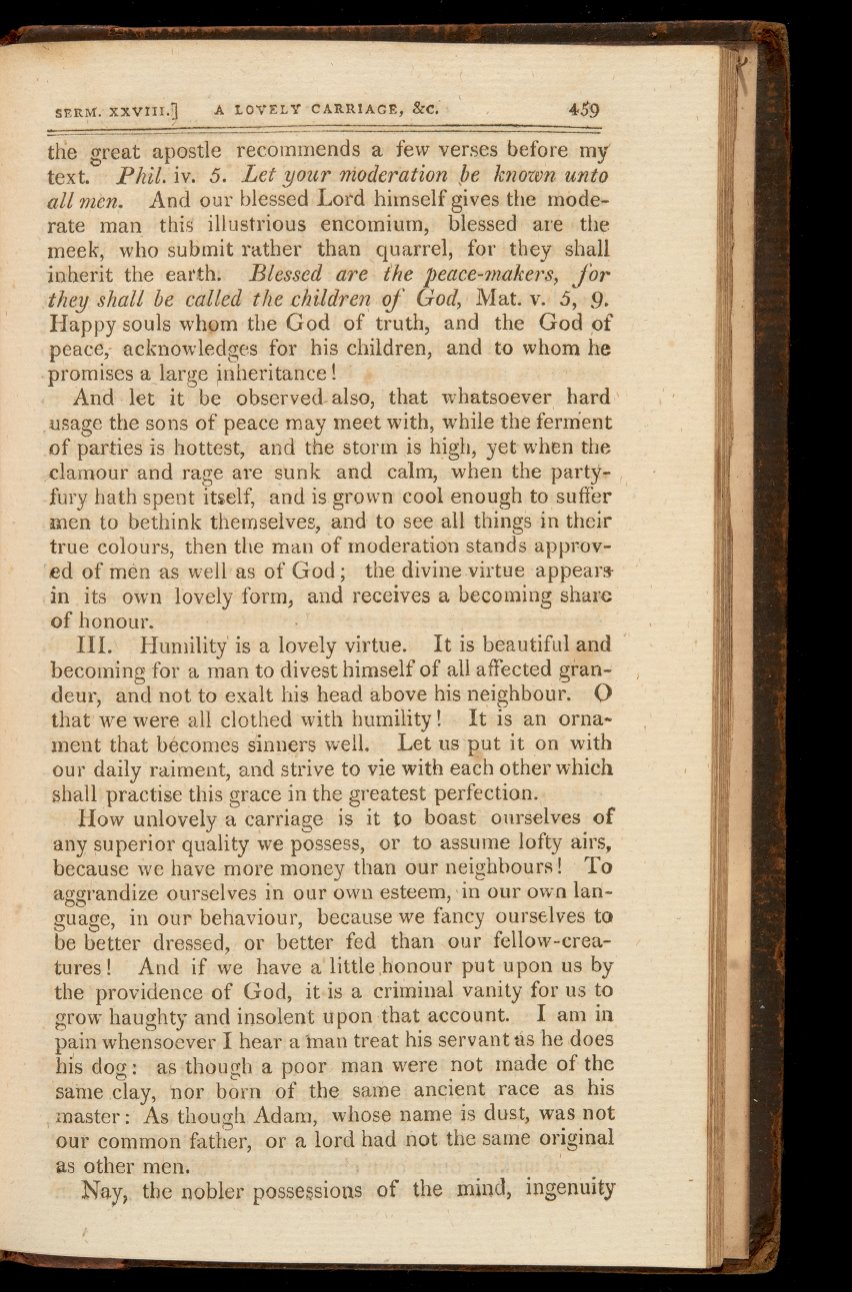

SERM.
XXVIII.7
A
LOVELY'CARRIAGE,
&C.
4$9
the
great
apostle recommends a
few
verses before my
text.
Phil.
iv.
.5.
Let
your
moderation
be known
unto
all
men.
And our
blessed
Lord
himself
gives
the
mode-
rate
man this illustrious encomium,
blessed
are the
meek, who
submit
rather than
quarrel,
for
they
shall
inherit
the earth: Blessed
are
the
peace-makers,
for
they
shall
be
called
the children
of
God,
Mat.
v.
5,
9.
Happy
souls whom
the
God of
truth,
and the
God
of
peace,
acknowledges
for his
children, and
to whom he
promises
a large inheritance
!
And
let
it
be
observed
-also,
that
whatsoever hard
usage
the
sons
of
peace
may
meet
with, while
the
ferment
of
parties
is
hottest,
and
the storm
is
high,
yet
when
the
clamour and
rage
are sunk and
calm,
when
the
party
-
fury
bath spent
itself,
and
is
grown cool enough
to suffer
men
to
bethink
themselves, and
to
see
all things in
their
true
colours,
then the
man
of
moderation stands approv-
ed of
men
as
well
as
of
God;
the
divine virtue
appears
in
its own
lovely
form,
and
receives
a becoming share
of
honour.
III.
Humility
is
a lovely
virtue.
It
is
beautiful and
becoming
for a man to
divest himself
of
all affected
gran-
deur, and not
to
exalt
his
head above
his
neighbour. O
that
we were
all
clothed
with humility
!
It
is
an
orna-
ment that
becomes sinners
well.
Let
us
put it
on with
our
daily raiment,
and strive to
vie with
each
other
which
shall
practise
this
grace
in
the
greatest
perfection.
How unlovely
a
carriage
is
it
to
boast
ourselves
of
any
superior
quality
we
possess,
or to
assume lofty airs,
because
we
have
more money
than our
neighbours
!
To
aggrandize ourselves
in
our
own
esteem, in
our
own
lan-
guage,
in
our
behaviour, because
we
fancy ourselves
to
be
better
dressed,
or
better
fed
than our
fellow
-crea-
tures!
And
if
we
have
a'
little honour
put
upon
us by
the providence
of
God,
it
is
a
criminal vanity for
us
to
grow
haughty and insolent upon
that
account.
I
am in
pain whensoever
I
hear a man treat
his
servant
us
he
does
his dog
:
as
though
a poor
man
were
not
made
of
the
same
clay,
nor
born
of
the
same
ancient race
as his
master:
As
though
Adam, whose name
is
dust, was
not
our
common father,
or a
lord
had
not
the
same
original
as
other
men.
Nay, the nobler
possessions
of
the
mind, ingenuity

















